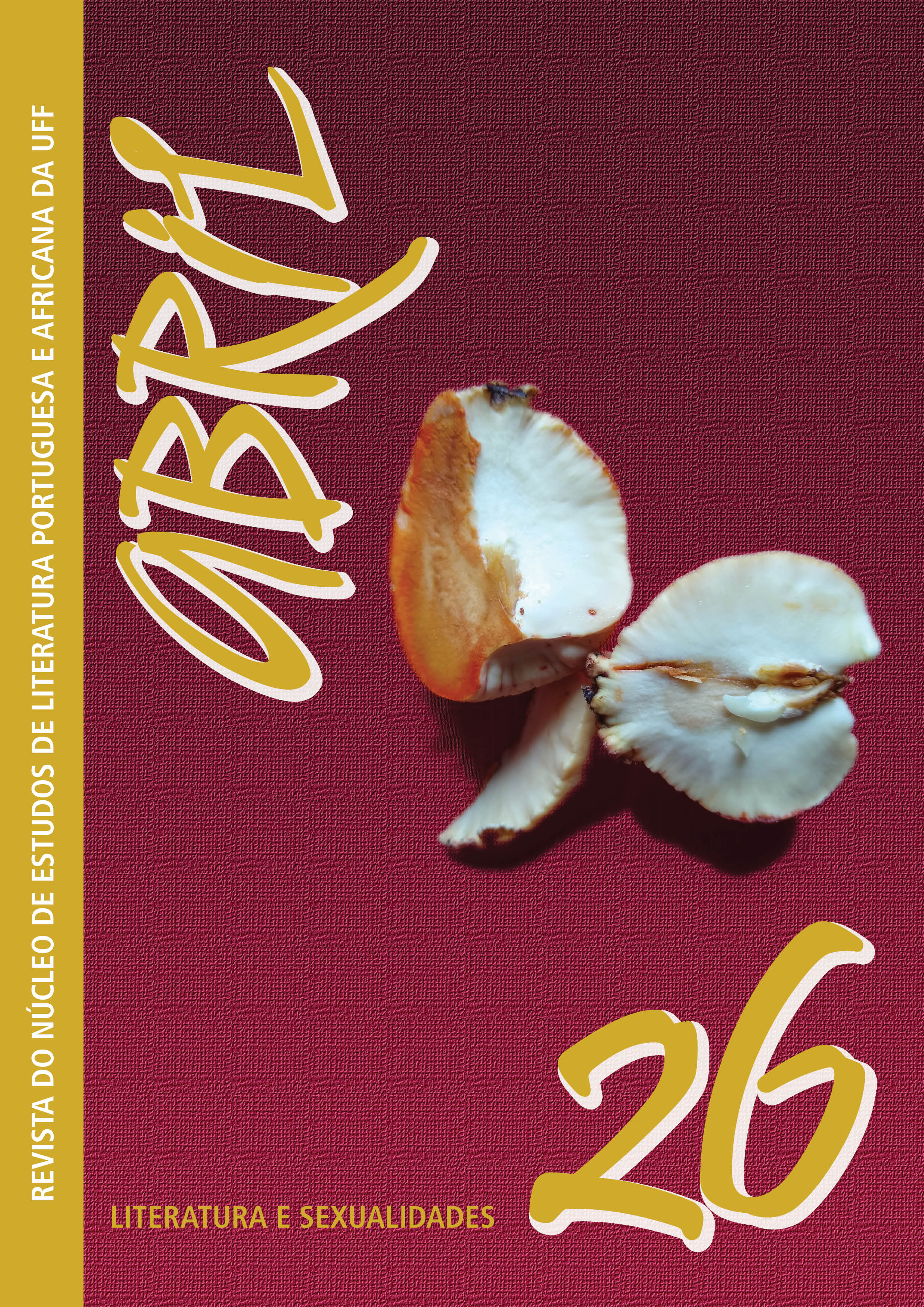Branca de Neve, de Lídia Jorge: sobre mulheres e princesas
DOI:
https://doi.org/10.22409/abriluff.v13i26.48916Palavras-chave:
Branca de Neve, Lídia Jorge, ESCRITA FEMININA, ViolênciaResumo
Este artigo faz uma leitura intertextual da personagem Maria da Graça, do conto “Branca de Neve”, de Lídia Jorge, com a Branca de Neve do conto de fadas “Branca de Neve e os Sete Anões” dos Irmãos Grimm. Como suporte teórico, recorremos as relações dos contos de fadas com a psicanalise e a uma interface com os estudos de gênero. No conto clássico, a personagem principal e uma jovem, frágil, que “necessita” da proteção masculina, e injustiçada pela madrasta, mulher ciumenta e invejosa, mas forte e empoderada. Já Maria da Graça possui os dois lados do feminino dos contos de fadas: e forte, independente e ambiciosa como a “bruxa”, e inocente como a “princesa”, posto que não malda a atitude dos meninos que a seguem e, assim como Branca de Neve, ao se ver só, precisa lutar pela sobrevivência. A primeira conta com o apoio dos anões, enquanto a segunda e lesada pelos meninos, os “anões”. Em crônica de 2020, Lídia Jorge reflete sobre a importância de expor condições de desigualdade, violência e outras situações que inferiorizam as mulheres e ressalta a urgência dessa discussão, considerando que “a luta feminista e uma questão de equilíbrio para a humanidade”. O intertexto aqui abordado faz pensar nos desafios de Maria da Graça para ser bem-sucedida e que, como tantas mulheres “de carne e osso”, e independente e se estabelece com segurança num ambiente historicamente marcado pela predominância masculina. No entanto, ela não está isenta da violência, física ou simbólica, que espreita em cada canto.
Downloads
Referências
BETTELHEIM, Bruno. A Psicanálise dos Contos de Fadas. Tradução: Arlene Caetano. 30.ed. Rio de Janeiro: Paz e Terra, 2015.
BOURDIEU, Pierre. A dominação masculina. 2. ed. Rio de Janeiro: Bertrand, 2002.
______. O Poder Simbólico. Tradução: Fernando Tomaz. 16. ed. Rio de Janeiro: Bertrand, 2012.
BUTLER, Judith P. Problemas de gênero: feminismo e subversão da identidade. 11. ed. Rio de Janeiro: Civilização Brasileira, 2016.
COELHO, Nelly Novaes. Panorama histórico da Literatura infantil/juvenil. 5.ed. Barueri: Manole, 2010.
DIAS, Angela Maria; GLENADEL, Paula (Orgs.). Estéticas da crueldade. São Paulo: Yendis, 2007.
GRIMM, Jacob & Wilhelm. Contos de Grimm. Belo Horizonte: Itatiaia, 2000.
JORGE, Lídia. Branca de Neve. In: ______. Antologia de contos. São Paulo: Leya, 2014.
______. Praça de Londres. Lisboa: Publicações Dom Quixote, 2008.
______. Em todos os sentidos. Lisboa: Publicações Dom Quixote, 2020.
LOPES, Denilson. A delicadeza: estética, experiência e paisagens. Brasília: Editora UnB; FINATEC, 2007.
MACHADO, Ana Maria. Conversas sobre leitura e política. São Paulo: Editora Ática, 1999.
NOVAES, Adauto (Org.). Civilização e barbárie. São Paulo: Companhia das Letras, 2004.
SELIGMANN-SILVA, Marcio. O local da diferença: ensaios sobre memoria, arte, literatura e tradução. São Paulo: Editora 34, 2005.
Downloads
Publicado
Edição
Seção
Licença
Copyright (c) 2021 Abril – NEPA / UFF

Este trabalho está licenciado sob uma licença Creative Commons Attribution-NonCommercial 4.0 International License.
Autorizo a Revista Aabril - NEPA/UFF a publicar o artigo que ora submeto, de minha autoria/responsabilidade, caso seja aceito para publicação online. Declaro, ainda, que esta contribuição é original, que não está sendo submetida a outro editor para publicação, e assino a presente declaração como expressão da verdade.
Os trabalhos publicados no espaço virtual da Revista Abril serão automaticamente cedidos, ficando os seus direitos autorais reservados à Revista Abril. Sua reprodução, total ou parcial, é condicionada à citação dos autores e dos dados da publicação.

A Revista Abril utiliza uma Licença Creative Commons - Atribuição-NãoComercial 4.0 Internacional (CC BY-NC 4.0).









